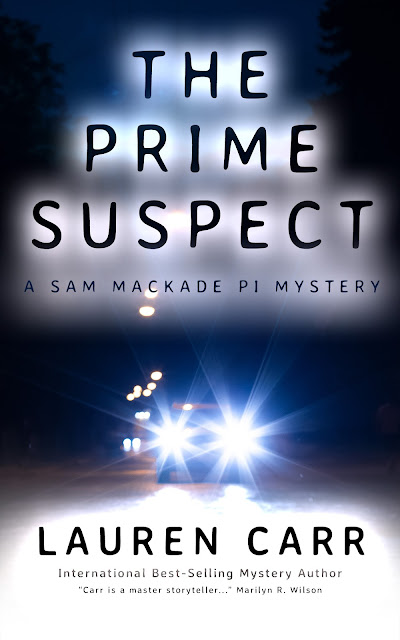If you'd like to participate, you can create a post and link it here.
This week the topic is: Be The Expert/Ask the Expert/Become the Expert (Rennie of What’s Nonfiction): Three ways to join in this week! You can either share 3 or more books on a single topic that you have read and can recommend (be the expert), you can put the call out for good nonfiction on a specific topic that you have been dying to read (ask the expert), or you can create your own list of books on a topic that you’d like to read (become the expert)
For those of you who have been following my blog, you know that I love neuroscience. I have read some good books on the subject and I've collected a few books that I've been wanting to read. Here are the books that I've read and loved:
Dr. Leaf had devoted her life work, since the 1990s, in helping people see that they can renew their minds in a tangible way by learning to control their thoughts and emotions. She says that by doing this through conscious effort, we can actually change the programming and chemistry of our brain, even in the most challenging neurological situations. In other words, we are not victims of our biology or circumstances. How empowering! How hopeful and enlightening. And the concept of neuroplasticity was always supported by God as stated in Romans 12:2.
Part memoir and part educational and resource book, The Woman Who Changed her Brain, is about the story and work of Barbara Arrowsmith-Young, a remarkable woman and Canadian pioneer in the practical application of “neuroplasticity.” Not only was she born with severe learning disabilities that had her struggling with language, spatial awareness, and symbolic thinking, but she overcame them after she came upon the works of famous Russian neuropsychologist Alexander Luria, which inspired her to invent cognitive exercises that changed her brain!
Because I work with seniors who have dementia, I had a special interest in this one. The lifestyle choices we make can determine how well we age. You can actually slow down cognitive decline. An important book for all who want to keep their mind sharp.
Here are some of the best books on the topic of neuroscience that I have heard about but have not fully read.
I've read snippets of this one and I've met Dr. Doidge. He is amazing!
Makes one realize how marvelous our brains really are.
This one is on my reading list for December
Have you read any of these books?













I've just added The Aging Brain to my TBR. Here are some that are related: Another Day in the Frontal Lobe: A Brain Surgeon Exposes Life on the Inside and When the Air Hits Your Brain: Tales of Neurosurgery.
ReplyDeleteThank you for the suggested reading Deb! It's noted. I'm going to look it up.
DeleteThese are great suggestions. I haven't read any of these titles. The brain is so fascinating.
ReplyDeleteYes, I'm fascinated by how our brain functions. I'm more a psychology gal that a science one but I especially like when a book mixes the two.
DeleteI loved The Brain that Changes Itself - I read it about 6 yrs ago and still think about it and reference it in general conversation.
ReplyDeleteI think that book changed the way lots of people thought about how our brain functioned.
DeleteI haven't read any of these book as they are outside my usual sphere of reading. But, that's what I like about nonfiction November: we learn about books we wouldn't normally read and they sound so interesting.
ReplyDeleteI totally agree with you. I've discovered so many great nonfiction books this month!
DeleteThese all sound so interesting! The brain is such an amazing, fascinating organ.
ReplyDeleteYes, totally.
DeleteThis is a great list - I find brain research fascinating. I've read Doidge's The Brain that Changes Itself. Very detailed and covers a lot of topics, I learned a lot from it. That's interesting that you met him!
ReplyDeleteYes, that book helped many scientists change the way they saw the brain.
DeleteI got an error message from blogger when I posted here. :( Not sure what's happening, pfft. Just wanted to share that the human brain is indeed mysterious and miraculous. To think we only use about 10% of it! I lean to philosophy, but your post made neuroscience accessible too.
ReplyDeleteNot sure why blogger did that. So frustrating! Thanks for persisting and staying to comment again. :-)
DeleteI love reading about neuroscience. I haven't read a lot in this topic but have definitely enjoyed what I did read. Oliver Sacks is one of my favorite authors in this category.
ReplyDeleteI've come across Oliver Sack's research in articles but have not read his books which I would like to. Thanks for making me remember to include him in my future reading list.
DeleteNeuroscience is one of my interests, too. The Body Keeps the Score: Brain, Mind and Body in the Healing of Trauma by Bessel A. Van der Kolk was fantastic!
ReplyDeleteThanks for the recommendation! I will look it up.
DeleteYou already have a strong list of books but I'll add another - Do No Harm by Henry Marsh which is a memoir of a senior neurosurgeon. Fascinating insight into this high risk area of medicine
ReplyDeleteAwesome, thanks for the recommendation! I've added it to my TBR list of interesting books to read.
DeleteAn intriguing topic, thanks for sharing your recommendations
ReplyDelete